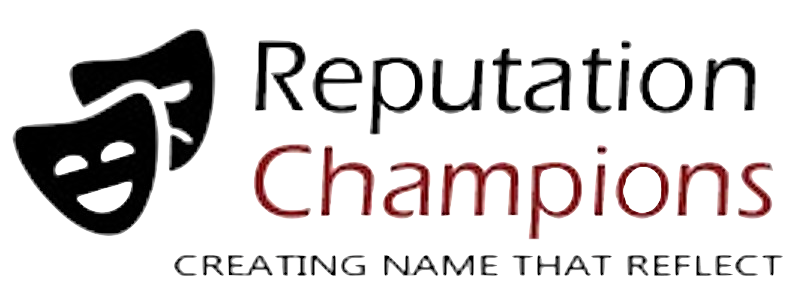YOUR ONLINE REPUTATION MATTERS A LOT TO PUBLIC AND YOUR CLIENTS
Reputation protection is the process of preserving the image of your brand against all the negative effects including negative reviews, false information, and deliberate attack. This entails several approaches meant to keep a good brand presence, quickly respond to negative comments, and guarantee consistent positive communication over all media. Focusing on reputation protection helps companies establish confidence, increase client loyalty, and guarantee long-term survival.
At Reputation Champions, we understand that long-term success depends on a strong and positive brand reputation. Our knowledgeable team is committed to protect your brand reputation by employing customized plans fit for your company objectives.
The Importance Of Protect Brand Reputation
It’s quite tough to put a financial figure on how much your online reputation is worth. However, there are numerous reputation protection online statistics that demonstrate its significance. According to BrightLocal, approximately 87 percent of individuals will avoid doing business with a firm that has received poor evaluations. This gives us an idea of how important your online brand reputation protection is to your earnings.
But it’s not just about the money. When you protect your online reputation, it adds value to everything you do, from your collaborations to your recruitment efforts. A bad reputation, according to Harvard Business Review, can increase hiring costs by more than 10%.
We offer online reputation protection services for the following spheres:
Preserve Brand Integrity
We concentrate on protect brand reputation by means of analysis of your present brand impression and recognition of any risks. Our staff creates and carries out plans to reduce risks and highlight favorable features of your brand, so guaranteeing a consistent and good image.
Online services under our reputation protection online management are meant to track and control the online visibility of your brand. We track mentions, reviews, and social media interactions using cutting-edge tools and technologies so that we may quickly handle any problems and keep a good brand image.
Protection of brand reputation
Our brand reputation protection services mostly aim to defend your brand from possible risks and negative effects. We create and execute our plans to keep up a good brand image and handle any potential problems.
Online Brand Integrity Protection
We offer thorough online reputation protection services to guarantee your brand is consistently and favorably shown on all online platforms. To build a coherent and good brand image, our plans call for handling social media, online reviews, and content.
Safeguard Online Brand Image
Success of a company depends on a good online presence. By controlling online reviews, responding to unfavorable comments, and making sure your company is shown favorably on all online platforms, we help you to protect your brand reputation.
Maintain and Protect Company Reputation
Our main objective is to assist you in maintaining and protecting your company reputation through all-encompassing plans covering all facets of brand visibility. From social media management to online reviews, we make sure your audience finds your brand favorable.
Online reputation protection services
Our online reputation protection services are meant to enable you to keep a good online presence. We handle online reviews, respond to bad comments, and highlight good content to help your audience to view your company favorably.
What You Should Know Regarding Our Reputation Protection Online Program?
Reputation Champions guarantees the effective preservation to protect brand reputation by using a tested procedure. Here is some information regarding our method:
- We begin our in-depth consultation to learn your brand, objectives, and present reputation. This enables us to develop a thorough strategy for preservation of brand reputation.
- Our staff creates unique plans fit for your particular situation. We concentrate on highlighting the good features of your brand and handling any unfavorable comments so as to establish a strong, favorable brand image.
- We use social networking, online reviews, and content creation among other outlets to apply the ideas. Our aim is to make sure your brand is shown favourably on every media outlet.
- We keep an eye on the online visibility of your brand and evaluate how well our plans work. This lets us correct and improve as necessary to guarantee the finest outcomes.
- We appreciate your comments and are dedicated to always developing. We routinely assess your development and make required changes to guarantee ongoing protect your brand reputation.
- Our aim is to present a powerful and good brand image that not only satisfies but also surpasses your needs so enabling you to reach your common organizational goals.






